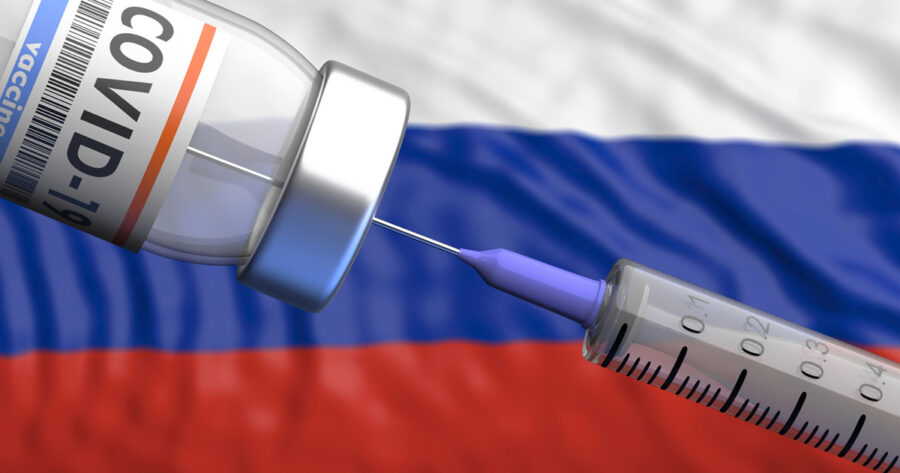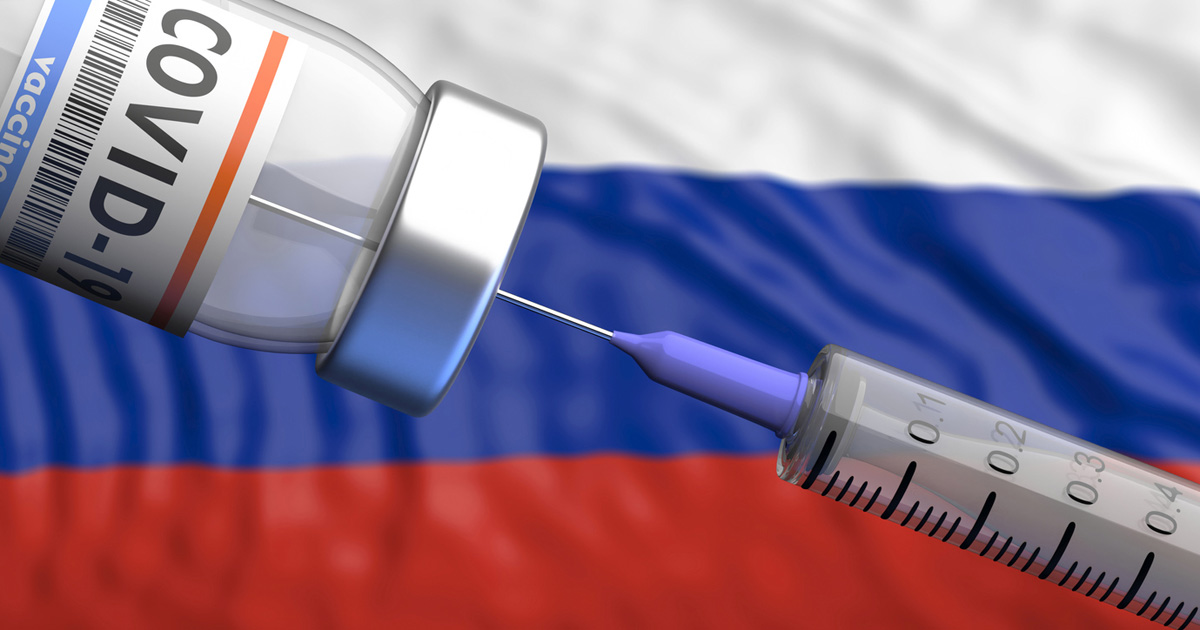
South Africa Puts Russia’s Sputnik V Vaccine Use Application on Hold Amidst HIV Fears
The use of Russia’s Sputnik V COVID-19 vaccine will remain “not approved” by the South African Health Products Regulatory Authority (SAHPRA) amid concerns that it may increase the risk of HIV contraction among vaccinated males. Please see UPDATE from the Gamaleya Research Institution of Epidemiology and Microbiology further down the page. In the statement on […]

The use of Russia’s Sputnik V COVID-19 vaccine will remain “not approved” by the South African Health Products Regulatory Authority (SAHPRA) amid concerns that it may increase the risk of HIV contraction among vaccinated males. Please see UPDATE from the Gamaleya Research Institution of Epidemiology and Microbiology further down the page.
In the statement on Monday, SAHPRA said it was concerned that use of the Sputnik V vaccine in South Africa, a country with high HIV prevalence and incidence, “may increase the risk of vaccinated males acquiring HIV”.
Despite this, SAHPRA said the rolling review of the Sputnik V vaccine would remain open for submission of relevant safety data in support of the application.
“SAHPRA has been engaged in a rolling review of the data for the Sputnik V COVID-19 vaccine since the initial application was submitted on 23 February 2021.
“This vaccine was developed by the Gamaleya Research Institute of Epidemiology and Microbiology in the Russian Federation. The locally-licensed applicant is Lamar International Pty (Ltd).
“The Sputnik V vaccine combines two separate adenovirus-vectored constructs, one relying on the Adenovirus Type 26 (Ad26) and the other on Adenovirus Type 5 (Ad5), as the delivery vehicles for the antigen.”
Concerns have been raised about the safety of Ad5-vectored vaccines in populations at risk for HIV infection.
One of the challenges faced by such vaccines, said SAHPRA, was the presence of pre-existing Ad-specific neutralising antibodies (NAbs) in the general population.
“The safety of adenovirus vaccine vectors has been evaluated in a number of studies. In particular, the results of the STEP trial (which primarily recruited men who have sex with men in the Americas), and the PHAMBILI trial (which recruited heterosexual men and women in South Africa), were considered.
“Both clinical trials were designed to administer three doses of an Ad5-vectored vaccine encoding the HIV gag, pol and nef proteins. In both the STEP clinical and PHAMBILI trials, administration of an Ad5-vectored vaccine was associated with enhanced susceptibility/acquisition of HIV in men.”
SAHPRA said while the STEP trial was stopped in September 2007 due to lack of efficacy, evidence quickly emerged of an enhanced risk of HIV infection in uncircumcised men with high titers of pre-existing antibodies to Ad5.
It said over extended follow-up, the increased risk of HIV among vaccine recipients became “statistically significant when the entire trial population was analysed”.
The STEP trial results led to the early cessation of the PHAMBILI trial. Although the initial results from the PHAMBILI trial did not show enhanced HIV risk, this risk was confirmed after extended follow-up.
The Authority said during the assessment of the application for approval of the Sputnik V vaccine, SAHPRA reviewed the outcomes of the two trials in detail, as well as the arguments advanced in a commentary in Lancet in 2020, by Buchbinder et al.
In particular, reads the statement, the commentary pointed to confirmatory data from a non-human primate challenge study.
Subsequently SAHPRA, it said, requested the applicant to provide data demonstrating the safety of the Sputnik V vaccine in settings of high HIV prevalence and incidence.
The applicant was not able to adequately address SAHPRA’s request.
In addition, SAHPRA said it had held a consultation meeting with expert committees, including leading members of the local and international scientific community on this matter.
SAHPRA added that to date, the Sputnik V COVID-19 vaccine has not received Emergency Use Listing by the World Health Organization (WHO).
It said most recent WHO update indicates that the process is “on hold, awaiting completion of rolling submission”.
A further note states: “Anticipated date will be set once all data is submitted and follow-up of inspection observations completed”.
“Recent media coverage has confirmed that there is ongoing engagement between WHO and the Russian authorities.”
The resolution to not grant the application to date was after the authority held consultations with local and international scientific experts and after considering all the available data, including review of the dossier submitted by Lamar International (Pty) Ltd.
UPDATE: Statement from Gamaleya Center of Epidemiology and Microbiology
“SAPHRA has confirmed that the rolling review of Sputnik V continues. All the required information confirming that possible concerns about the safety of Ad5-vectored vaccines in populations at risk for HIV infection are completely unfounded will be submitted to the South African regulator.”
It also confirms that:
- “While adenoviruses are one of the most frequent causes of light common flu experienced by everyone, there is no evidence of increased risk of HIV infection among human population after common cold or conjunctivitis. “
- “There is no scientific or clinical evidence confirming the association of wild type adenoviruses or replicative defective adenovirus vectors with increased risk of HIV infection in high risk groups.”
- “The scientific plausibility of this association is also unlikely.”
“Speculation regarding the association between adenovirus type-5 vectored vaccines and HIV transmission in high risk groups has been based on small-scale inconclusive studies among volunteers with highly probable risky behavior (1-3). In contrast, a meta-analysis of six clinical studies and their long-term follow-up in 7,092 participants showed that, after rigorous statistical analysis of pooled individual participant-level data, there was no statistically significant increase of HIV-1 infection among adenovirus type-5 vectored vacсine recipients when all study participants and follow-up time were considered (4).
”It is also important to stress that the human adenovirus 5 is already used in other popular vaccines, including Cansino, which is widely applied in China, including during vaccination of the Chinese military, and approved around the world.
“The efficacy of the human adenoviral vector platform has been widely and internationally proven in non-COVID-19 vaccines. More than 250 clinical trials and 75 international publications confirm the safety of vaccines and medicines that are based on human adenovirus vectors.”
Sources: SAnews.gov.za and Gamaleya Center of Epidemiology and Microbiology
